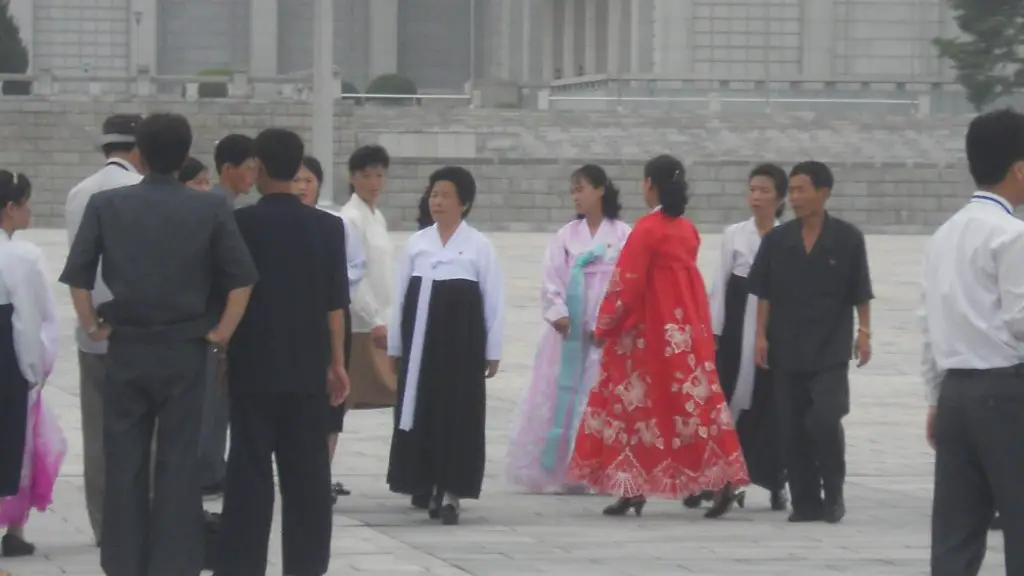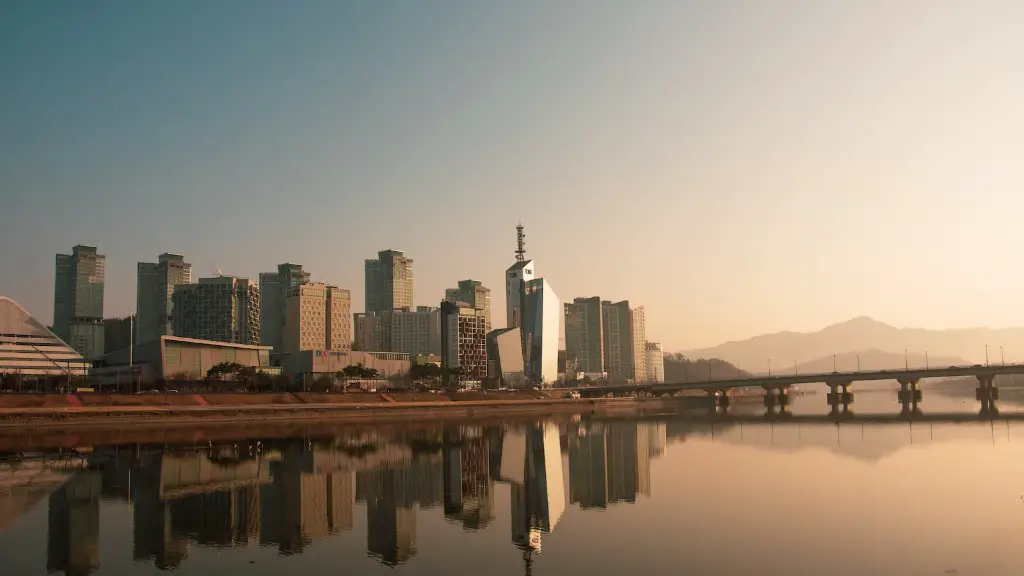How War With North Korea Could Have Far-Reaching Effects
North Korea has long been a source of international tension, with its nuclear weapons development, provocative language and aggressive rhetoric. This has caused many countries to ponder the question of whether it would be wise to go to war with the North Korean regime. The consequences of such a conflict would be far-reaching, and the outcome would be anything but certain.
The Korean peninsula has long been divided between North Korea, an authoritarian state closely aligned with China, and South Korea, a democratic republic closely aligned with the United States. Since the 1950s, tensions between the two sides have escalated and resulted in multiple conflicts, most notably the Korean War. It is this history of hostility that gives South Korea and its allies cause for concern when considering the prospect of war with North Korea.
The potential ramifications of such a conflict would be catastrophic. Aside from the immediate human costs of such an armed confrontation, there would be a huge economic impact. Economists predict that if war were to break out between North Korea and South Korea, the trade routes between the two countries would be disrupted, leading to an increase in food and fuel prices in both nations. In addition, the disruption of normal trade routes would have a negative effect on many other countries in the region, and could have a negative impact on the global economy.
Furthermore, the presence of North Korea’s stockpiles of nuclear weaponry adds to the complexity of the situation. If talks were to break down completely, and hostilities were to escalate, there is a real danger that nuclear weapons could be used in the conflict. This could lead to devastating consequences, both in terms of direct casualties and indirect impacts, such as mass displacement of civilians and the spread of radioactive fallout.
Experts agree that the most prudent course of action is to continue diplomacy and try to find a peaceful resolution to the conflict. This may take some time and require a great deal of patience on both sides. However, it is the only viable solution to ensure the safety and security of both countries, as well as the wider region, in the long term.
North Korean Regime is Ultimately Responsible for War on the Peninsula
The North Korean regime is ultimately responsible for the continued war and tension on the Korean peninsula. The government has consistently used bellicose rhetoric to intimidate the international community and incite fear in its neighbors. Its recent actions, such as the successful testing of its numerous nuclear weapons, has proven its willingness to pursue a militaristic approach in spite of international condemnation.
Furthermore, the North Korean regime’s oppressive ruling style, which denies its citizens basic human rights, must be taken into account when considering war with the country. This includes the fact that people who speak out against the government are arrested and held without trial, and the severe restrictions placed on freedom of expression, movement, and association.
The North Korean government has also been accused of numerous human rights violations, including forced labor and the persecution of religious communities. Therefore, any attempt to go to war with North Korea must be considered in the context of its human rights record, as well as its refusal to abide by international law and treaties.
The continued saber-rattling by the North Korean government has only served to further increase international tension and destabilize the region. The US and its allies have repeatedly called on North Korea to denuclearize and abide by United Nations resolutions, but the regime has consistently refused to do so. This raises serious doubts about whether it can be trusted to keep its word and enter into a peaceful solution.
No Clear Path to Victory in War With North Korea
Another important factor to consider when it comes to war with North Korea is the fact that there is no clear path to victory. North Korea has been preparing for war since the 1950s, and has a large and well-trained army, as well as vast caches of conventional and nuclear weapons. It has also developed a sophisticated air defense system, which would make any air strike highly risky and costly.
Furthermore, North Korea has the advantage of being geographically isolated, making it difficult for outside forces to penetrate and conduct any kind of sustained offensive operations. This means that any attempt to go to war with North Korea would require a sustained air and ground campaign over a long period of time, which could result in significant casualties on both sides.
Finally, the complex international politics of the region must also be taken into account. North Korea is closely aligned with China, and any conflict between the two countries would likely lead to a broader conflagration. This would draw in other major players such as the United States and Russia, exacerbating the situation and making it even more difficult to bring about a peaceful resolution.
Militaristic Approach Would be Problematic
In light of all these factors, it is clear that any attempt to go to war with North Korea is fraught with danger and uncertainty. It is not simply a matter of defeating North Korean forces, but rather a complex political, social and economic issue that must be carefully considered. Therefore, it is imperative that the international community continue to pursue a diplomatic approach to resolving the situation.
A militaristic approach to the conflict would be problematic and possibly catastrophic. The human costs of such a conflict would be immense and the economic, social and political ramifications would be felt far and wide. In addition, all sides must consider the repercussions of using nuclear weapons, which could have devastating consequences for the entire region and beyond.
Finally, any attempt to go to war with North Korea must also take into account the diplomatic and political implications for the region and the world. The United Nations has consistently called for a peaceful resolution to the crisis, and any deviation from this policy could lead to an even greater deterioration of the situation, with no clear path to resolution.
Important to Take a Focused, Diplomatic Approach
It is therefore important that all sides take a focused, diplomatic approach to the situation and continue their efforts to find a peaceful solution. This may take some time and require a great deal of patience on both sides, but it is the only way to ensure the safety and security of the nations involved and the world as a whole.
The key to resolving the situation is to engage North Korea in meaningful dialogue, and to create an environment where respect for human rights is respected and freedoms are safeguarded. Negotiations should focus on denuclearizing the peninsula, as well as addressing other issues such as the release of political prisoners and allowing for greater economic and social integration between North and South Korea.
It is also important for the international community to continue to apply pressure on the North Korean regime, through sanctions and diplomatic measures, in order to bring about a peaceful resolution to the situation. Finally, it is vital for all sides to remember that North Korea is a sovereign nation and that ultimately, it is up to the North Korean leaders to decide how they want to proceed.
Engagement Is Key to Preventing War With North Korea
In conclusion, going to war with North Korea would be a catastrophic mistake that could lead to immense human suffering and devastating economic and political ramifications. The best way to ensure the safety and security of the Korean peninsula is to continue diplomatic efforts to bring about a peaceful resolution. This includes engaging North Korea in meaningful dialogue and continuing to apply pressure on its leaders to abide by international agreements and treaties.
The international community must also consider the human rights implications of any potential militaristic action, and be cognizant of North Korea’s oppressive rule over its own citizens. It is only through continued diplomatic engagement and respect for human rights that the situation on the Korean peninsula can be stabilized and ultimately, a long-term peaceful resolution achieved.

